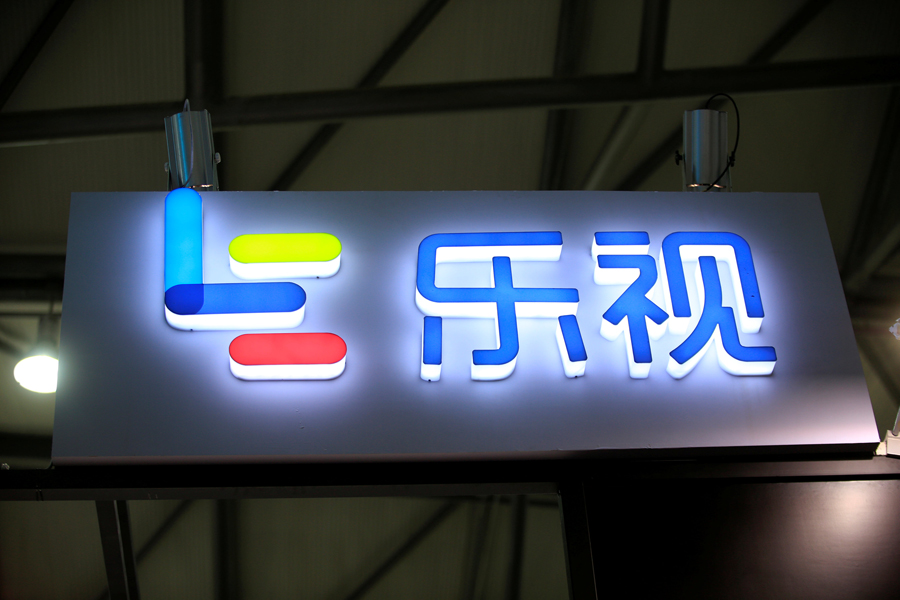







LeEco
 |
|
A Le Holdings Co Ltd sign at CES (Consumer Electronics Show) Asia 2016 in Shanghai, China, May 12, 2016. [Photo/Agencies] |
Competition in China's internet market has turned into a fierce contest among ecosystems, market research firm International Data Corporation wrote (IDC) in a report released on Thursday.
IDC analyzed the strong growth of internet giants Alibaba and Tencent in the second quarter, saying the two “have formed complete and solid ecosystems, thus helping startups achieve rapid growth and enhance their own competitive advantages.”
According to the IDC, Alibaba's ecosystem is based on its core business - ecommerce, while that of Tencent's centers on social networking and online gaming.
An internet ecosystem is a concept that has gained increasing popularity in the industry. As defined by economist Song Qinghui, an internet ecosystem is a brand new system evolved from the internet, enabling a comprehensive restructuring of value chains across industries.
Xue Yu, an analyst with IDC, endorsed the idea in a note, saying an internet ecosystem featured openness, innovation and win-win solutions and that there would be many more such systems across different industries in the future.
Currently, Baidu Inc, Xiaomi Corp and Le Holdings Co Ltd have all made headway in building their ecosystems.
Tencent and Alibaba's ecosystems are more developed in comparison with other companies Baidu and Xiaomi, who lag behind in user interactivity because their core businesses, namely search and mobile phones respectively, serve more as tools, Xue said.
Le Holdings' ecosystem is not built on a certain core business, but on a combination of platforms that seek to satisfy customers' various demand including TV, films, sports, among others, he noted.
Besides these companies, JD.com and Didi Chuxing also have the tendency to build their ecosystems based on their strengths, he said.
Let's take a look at the top five most influential internet ecosystems in China.